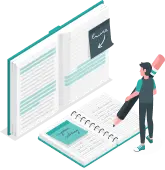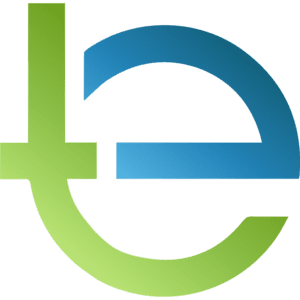Name
Capella University
PHI FPX 2000 Ethics
Prof. Name
Date
Applied Critical Theory
Applied Critical Theory is a methodology that bridges the theory critique gap and demonstrates practical application in discovering and deconstructing systemic inequalities within structures, whether they are social, cultural, or political (Tsai et al., 2021)l. Coming out of the Frankfurt School’s foundational ideas, particularly those of Horkheimer, Adorno, and Habermas, this tradition will continue pressing for critical reflection on power conditions, dominant ideologies, and institutional practices sustaining unjust conditions. This theory emphasizes social change and calls for the interrogation of norms with a heightened understanding of the subordinated viewpoints. Applied Critical Theory, as it is truly applied, is to empower people and communities by developing strategic action that promotes equity, inclusion, and justice. It provides an analysis of real-life issues, fosters activism, and implements change to end oppression and gain a just society.
Primary Interests of the Stakeholders
The interests of stakeholders usually depend on the specific roles, needs, and desired outcomes related to an organization or project (Shaukat et al., 2021). As for the internal stakeholders, that is, the employees and management, their interests might be job security, career growth, satisfaction with the workplace, and realization of organizational goals. The external stakeholders, which include customers, suppliers, investors, and the community, share value, reliability, ethical practices, and returns from a financial perspective. Regulatory bodies may focus on compliance and legality strictly while advocacy groups emphasize sustainability or social responsibility. Such diverse intentions are a crucial component of effective decision-making because stakeholder interests ascribing to organizational goals or objectives can beget trust, cooperation, and success over the long term.
Applications of Critical Theory to the Ethical Conflict
Critical Theory can be used to analyze ethical conflicts because it offers a perspective through which the power relations, social inequalities, and structures in place that lead to the conflict can be analyzed (Fuchs, 2021). This framework seeks a better understanding of how hegemonic ideologies or institutional practices might perpetuate injustice or marginalize certain groups. By critique and transformation, Critical Theory calls for questioning norms, and biases, and fostering inclusivity. The aim of this approach in dealing with ethical conflict is to help stakeholders identify inequities, focus on the voices of affected individuals, and look for solutions that align with fairness and justice. Therefore, instead of focusing on the symptoms of the conflict, the root cause is addressed, guiding ethical decision-making toward more equitable and socially responsible outcomes.
Ethical Conflicts
Ethical conflicts ensue when groups or individuals are faced with dilemmas in situations where moral values, principles, or obligations run contrary to one another (Robinson et al., 2021). It usually occurs where the right action by one party may harm another, or where one ethical principle’s binding compels its violation of another. Examples include autonomy versus beneficence in healthcare; loyalty versus honesty in the workplace; and profit motives versus social responsibilities in the business world. Cultural differences, social norms, and power dynamics serve to complicate the resolution of ethical conflicts. It requires great caution in choosing an appropriate ethical framework, engaging in open dialogue, being committed to fairness, and balancing conflicting interests in a manner that reflects integrity.
Traditional Theory of Normative Ethics
The traditional approach of normative ethics is setting down principles or rules guiding moral choice-making and the determination of right and wrong actions (Baker & Niederman, 2023). It is associated with three major approaches: deontology, utilitarianism, and virtue ethics. Deontology, by the German philosopher Immanuel Kant, recommends following duties and rules because they are duties, regardless of what happens as a consequence. Utilitarianism, as conceived of by thinkers such as Jeremy Bentham and John Stuart Mill, is based on actions that cause the most happiness or utility. In contrast, virtue ethics is based on Aristotle’s work and involves the development of good character, such as honesty and courage, to gain a good moral life. These traditional frameworks are thus grounds for ethical analysis; each provides specific criteria for the appraisal of moral behavior.
PHI FPX 2000 Assessment 3 Conclusion
In a nutshell, traditional normative ethics introduces the three foundation frameworks of deontology, utilitarianism, and virtue ethics for understanding and guiding moral decision-making (Dilbar, 2024). Deontology holds that basic duties and rules are paramount, utilitarianism continues to push forward the maximizing of happiness overall, and virtue ethics revolves around character development. These approaches can comprehend different ethical dilemmas with structured methodologies for advancing what is right and wrong. While each had his strengths and weaknesses, together their insight continues to shape contemporary ethical thought, nudging the individual and society alike to think critically about values and actions toward a just and morally fit world.
PHI FPX 2000 Assessment 3 References
Baker, E. W., & Niederman, F. (2023). Practitioner application of ethics in ethical decision-making within projects: a process theory view. Project Management Journal, 54(4), 875697282311669. https://doi.org/10.1177/87569728231166917
Dilbar, K. (2024). The principles of deontological ethics. Web of teachers: Inderscience Research, 2(5), 56–59. http://webofjournals.com/index.php/1/article/view/1299
Fuchs, C. (2021). Critical social theory and sustainable development: the role of class, capitalism, and domination in a dialectical analysis of un/sustainability. 131–155. https://doi.org/10.4324/9781003199182-7
Robinson, K., McKenna, B., & Rooney, D. (2021). The relationship of risk to rules, values, virtues, and moral complexity: what we can learn from the moral struggles of military Leaders. Journal of Business Ethics, 179(3). https://doi.org/10.1007/s10551-021-04874-5
Shaukat, M. B., Latif, K. F., Sajjad, A., & Eweje, G. (2021). Revisiting the relationship between sustainable project management and project success: The moderating role of stakeholder engagement and team building. Sustainable Development, 30(1), 58–75. https://doi.org/10.1002/sd.2228
Tsai, J., Lindo, E., & Bridges, K. (2021). Seeing the window, finding the spider: applying critical race theory to medical education to make up where biomedical models and social determinants of health curricula fall short. Frontiers in Public Health, 9. https://doi.org/10.3389/fpubh.2021.653643






